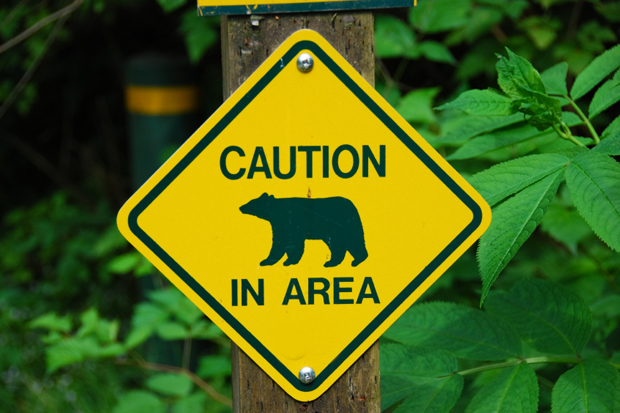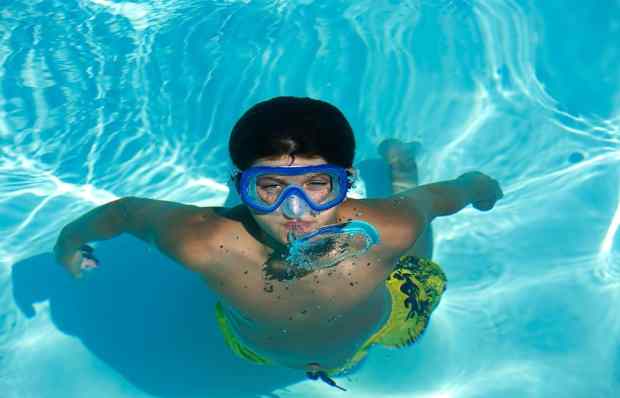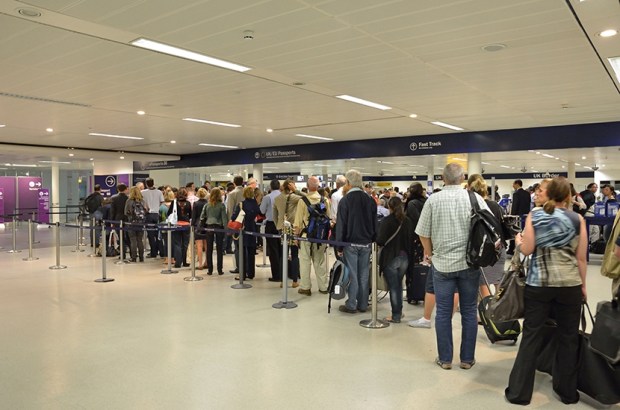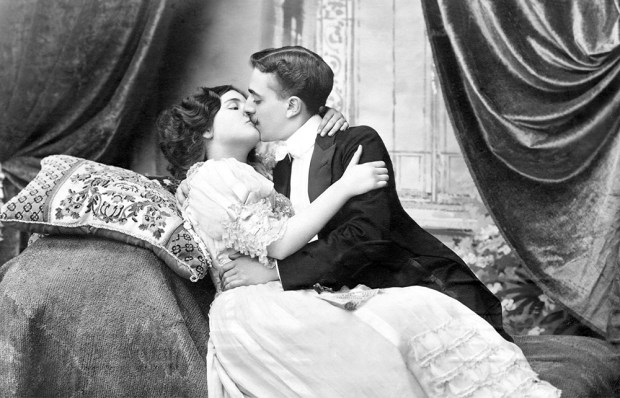I was looking after Oscar, my five-and-a-half-year-old grandson, for the day. We’d played football in the garden, then we’d come indoors and played three games of chess, one game of Battleships, and several memory card games. I lost the football by 25 goals to 11, all three games of chess, saw my entire fleet sunk one after the other by a succession of direct hits, and my performance in the memory card games was irrefutable confirmation of my early-onset Alzheimer’s disease.
After that we drove to the leisure centre for a swim. In the pool I was required among other things to crawl about on all fours underwater and be ridden like a horse. Back at home and ravenous after swimming, we ate beans on toast, and while we ate we played ‘I spy with my little eye’. I lost that too. Oscar spied with his little eye something beginning with ‘e for egg’, and after casting my exhausted little eye over every item on view in the kitchen or visible through the window, I had to give up. How silly of Grandad, we said, not to have realised the answer was ‘air’.
For the last hour before bedtime, we went in search of the last bear in England. We live close to the reputedly unusual geographical feature of a freshwater lake separated from the briny sea by a strip of land just 50–100 yards across. This narrow strip is pockmarked by shell-holes — now largely concealed by hawthorn bushes — made by the US army while practising for D-Day. We have long suspected that the last bear in England lives in one of these shell-holes because we have seen his huge pawprints on the muddy footpath (put there secretly by Grandad), also the remains of seagulls, his staple diet.
Although we have yet to clap eyes on the bear, Grandad has contacted eyewitnesses and written his biography, which we’ve read in instalments at bedtime. So we know a lot about him. We know, for example, that his life is a desperately lonely one, and that sociability and anthropophagism are permanently contending for mastery of his soul. Many a time the last bear in England has revealed himself to a jogger, fisherman or tourist, befriended them, invited them back to his place for a cup of tea, a piece of cake and a fireside chat, and then in a moment of madness eaten them alive. Of course afterwards he feels terrible remorse and vows never to do it again. Also on the expedition was my other grandson, Klynton, now four years old, who exists in another, evidently more interesting world, and who in stark contrast to his brother speaks but rarely, and when he does speak, it is in a language known only to himself. Klynton has no interest in bears, real or imaginary, but came along for the ride.
So the three of us set off along the level footpath running narrowly between sea and lake; Oscar and Klynton pedalling their bikes, their grandfather making his way on foot. Oscar and I kept our eyes peeled for pawprints and bear scat. We have studied galleries of colour photographs of bear scat online and we would know it if we saw it. We also know that the odour of bear scat is fruity and not unpleasant. Then my phone rang. It was a pal, crop-full of news, who proceeded to speak without pause. I was desperate to say I was busy hunting for the last bear in England, and could I ring him back, but the verbal torrent precluded it.
After listening to the monologue for about 15 minutes, I looked up and saw that Klynton, cycling along sedately as an old spinster, and away with the fairies as usual, was now a speck in the distance. Oscar, meanwhile, had dismounted and was bent over a glistening spiral of fresh dog’s muck and remodelling it with the end of a stick. I rang off without explanation or valedictories and ran half a mile, shouting all the way, until I had captured Klynton’s attention and penetrated his consciousness with the news that he must now cycle back again. Then I ran back to Oscar and positively and perhaps brusquely identified the stool as having been voided by a dog rather than the last bear in England.
And suddenly Grandad realised that he had had more than enough for one day, and that he was almost insane with exhaustion. I was finished and couldn’t go on. So I lay on my back in the long grass and shut my eyes and pretended to be dead, while my two grandsons amused themselves by throwing handfuls of small pebbles at Grandad’s corpse and by poking his cheek with the end of the bear-scat examination stick.
Got something to add? Join the discussion and comment below.
Get 10 issues for just $10
Subscribe to The Spectator Australia today for the next 10 magazine issues, plus full online access, for just $10.
You might disagree with half of it, but you’ll enjoy reading all of it. Try your first month for free, then just $2 a week for the remainder of your first year.















Comments
Don't miss out
Join the conversation with other Spectator Australia readers. Subscribe to leave a comment.
SUBSCRIBEAlready a subscriber? Log in